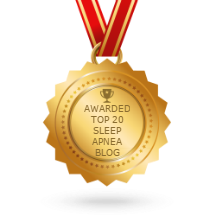Tag Archives: sleep

This Company Actually Pays Employees to Sleep More
Last week, Aetna CEO Mark Bertolini revealed that one of his company’s many wellness programs is a system that incentivizes employees to sleep more. “If they can prove that they get 20 nights of sleep for seven hours or more in a row, we will give them $25 a night, up to $500 a year,” Bertolini said on CNBC’s Squawk Box, in a segment with fellow shuteye champion Arianna Huffington, who has just released a book called The Sleep Revolution. He said Aetna employees have “all sorts of different ways of proving it,” including wearing Fitbits to track their sleep patterns.
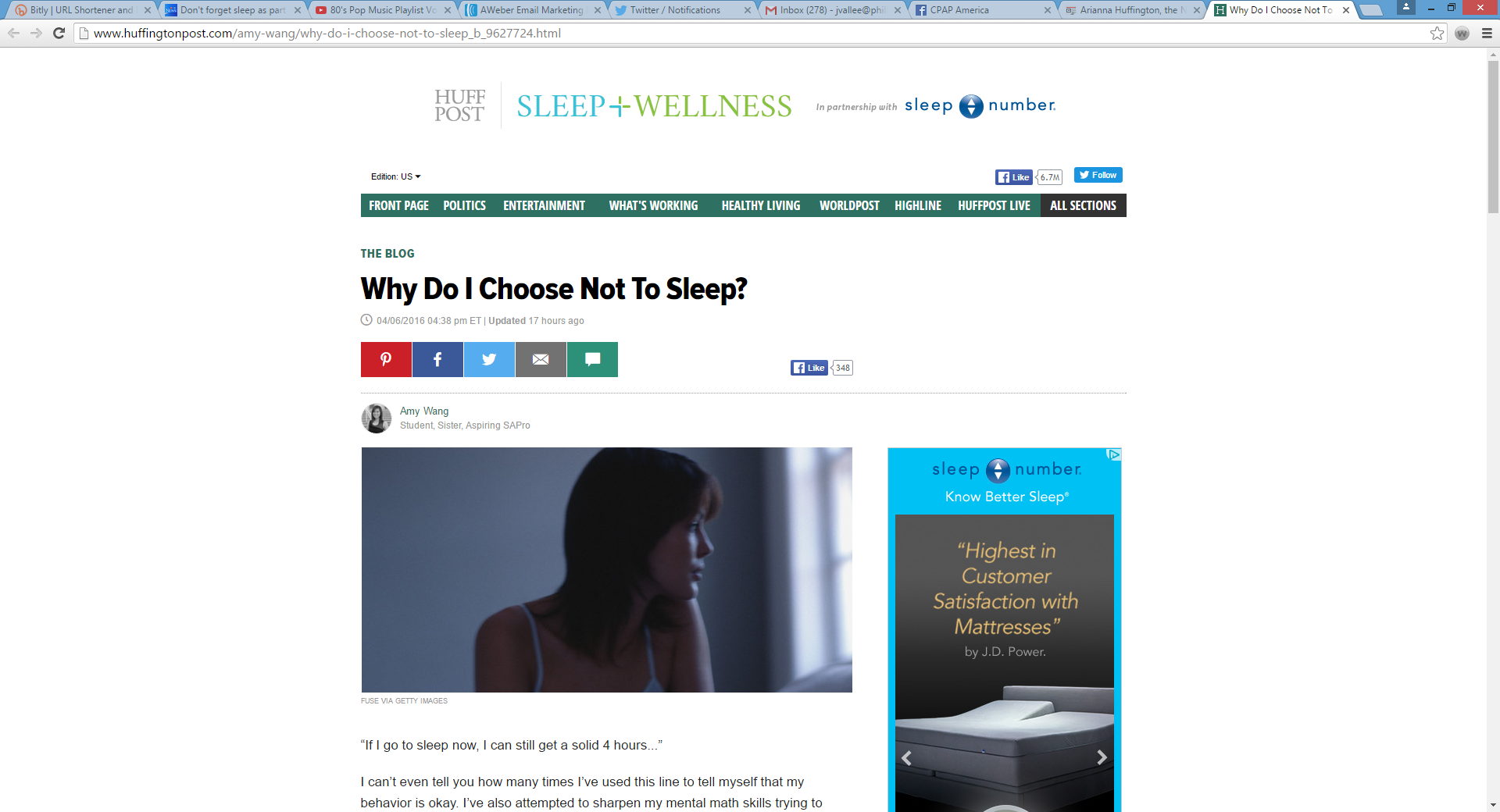
Why Don’t We Make Sleep A Priority?
“If I go to sleep now, I can still get a solid 4 hours…”
I can’t even tell you how many times I’ve used this line to tell myself that my behavior is okay. I’ve also attempted to sharpen my mental math skills trying to figure out the latest possible time I can go to sleep to get four hours of rest. It’s a minimum I’ve determined myself, a number of how many hours I believe I personally need to function. But I can never seem to get it right because I make these decisions when I’m already sleep-deprived, which leads me to poor choices and staying up until I only have four hours left.
So what happens? I wake up feeling sluggish.
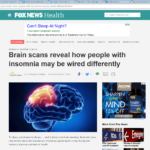
Insomnia sufferers may have abnormal brain activity
To sleep, perchance to dream … and to keep your brain working: Scientists have long known about the importance of getting a good night’s sleep to improve memory, learning and mental health. But the underlying cause of primary insomnia — a chronic inability to sleep soundly that’s not associated with the use of stimulants, or medical disorders such as depression — has eluded researchers.
Now, a small study comparing healthy participants to patients who have primary insomnia has found that the people with insomnia have weakened neural connections to and from the thalamus, the region of the brain that regulates consciousness, sleep and alertness.
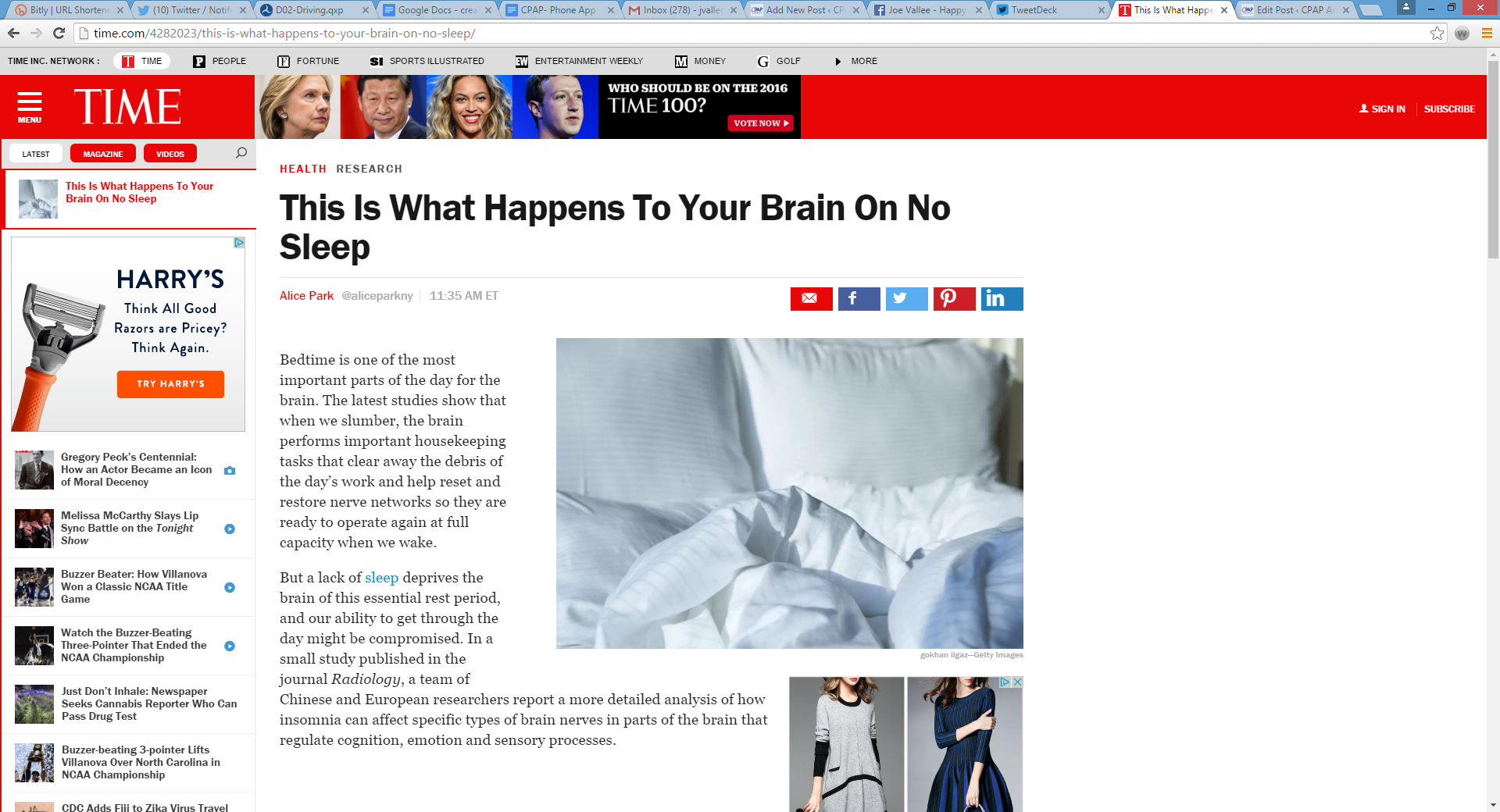
What exactly happens to your brain on no sleep?
Bedtime is one of the most important parts of the day for the brain. The latest studies show that when we slumber, the brain performs important housekeeping tasks that clear away the debris of the day’s work and help reset and restore nerve networks so they are ready to operate again at full capacity when we wake.
But a lack of sleep deprives the brain of this essential rest period, and our ability to get through the day might be compromised. In a small study published in the journal Radiology, a team of Chinese and European researchers report a more detailed analysis of how insomnia can affect specific types of brain nerves in parts of the brain that regulate cognition, emotion and sensory processes.

Which New Parent Will Sleep Less? Results may surprise
If you haven’t experienced it, no simple description will capture the feeling of deep, dizzying fatigue that can accompany the first few weeks with a newborn.
By the third child, Emily was wishing for an infant boarding school that could keep her son for those first few weeks of constant night waking and return him in a semiregulated state at about eight weeks. Well, not really, but the thought might have crossed her admittedly addled brain at 3 a.m. on several successive nights.
You might think that mothers, being the ones with the breast milk, have it the worst. But science seems to indicate otherwise.
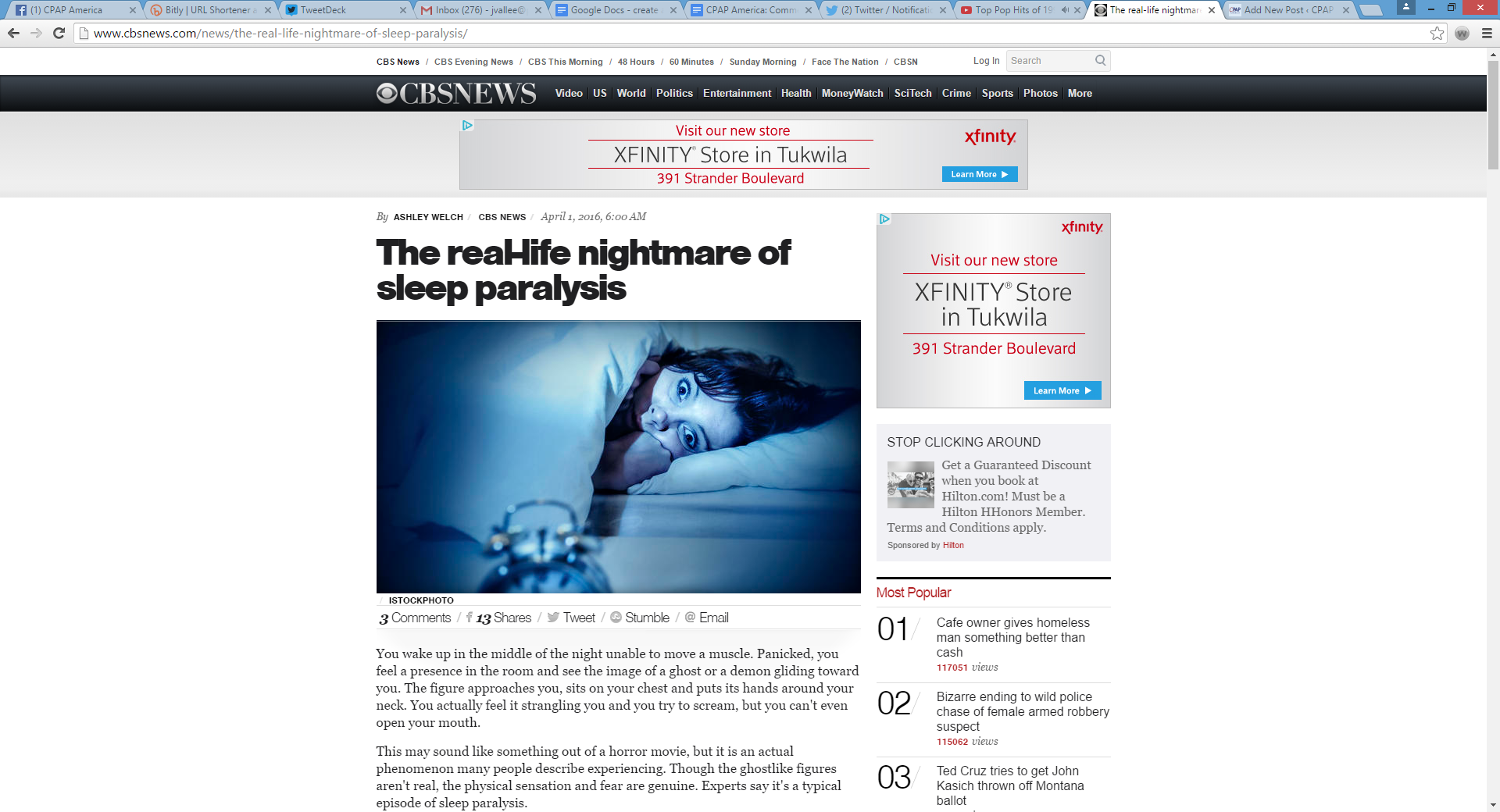
Do you suffer from Sleep Paralysis?
Does Sleep Paralysis Exist? Apparently So
You wake up in the middle of the night unable to move a muscle. Panicked, you feel a presence in the room and see the image of a ghost or a demon gliding toward you. The figure approaches you, sits on your chest and puts its hands around your neck. You actually feel it strangling you and you try to scream, but you can’t even open your mouth.
This may sound like something out of a horror movie, but it is an actual phenomenon many people describe experiencing. Though the ghostlike figures aren’t real, the physical sensation and fear are genuine. Experts say it’s a typical episode of sleep paralysis.

A sleep scientist doesn’t recommend sleeping pills
Sleeping pills? Not so fast
For millions of Americans, one of the biggest obstacles of the day (or in this case, the night) is getting a good sleep.
Many are tempted by the quick-fix of taking sedatives or hypnotic medications — fancy words for sleeping pills. If you do this often, you’re not alone. The Centers for Disease Control and Prevention estimated in 2013 that about 4% of US adults older than 20 used a prescription sleep aid in the past month of their study.
But unless you have a diagnosible sleep disorder such as insomnia — which actually isn’t as common as many think — sleeping pills are a bad way to go, according to sleep scientist Patrick Fuller, a neurologist at Harvard Medical School.

Do NOT Do These 7 Things Before Sleep
Getting a good night’s rest is about more than just going to bed at an appropriate time.
It’s also about arranging your evening so that it’s not stressful or stimulating in a way that can make it hard to fall and stay asleep.
We know: It’s easier said than done.
To help you out, we’ve rounded up seven common behaviors that can ruin your rest — plus what you can do instead.

Sleep Apnea Can Promote Cancer Growth?
Study Shows New Linkage Between Sleep Apnea and Cancer Growth
When we think of the trouble that snoring and sleep apnea bring, the first is always the annoying noise. Then there’s the daytime sleepiness, and association with high blood pressure and heart diseases.
But promoting cancer growth?

Superman Sleeps? Yes He Does!
Yes, Superman needs sleep!
This week’s release of “Batman v Superman” will answer a number of longstanding questions. Is Ben Affleck fit to wear the iconic cowl? Will Wonder Woman make more than a cameo appearance? Has Zack Snyder truly learned nothing from the backlash to General Zod’s gruesome demise? These are all pressing issues, but we’re hoping the blockbuster might address another, longer standing one, too: Does Superman sleep?

